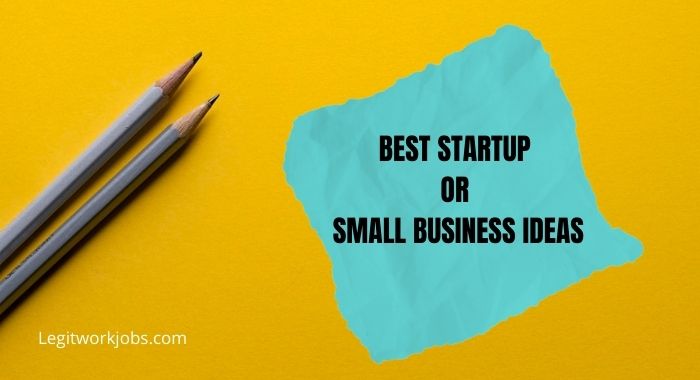Online Courses
10 Best Web Development Frameworks to Use in 2023
In the ever-evolving world of web development, choosing the right framework can significantly impact the efficiency and success of your projects. With 2023 right around the corner, it’s crucial to stay up-to-date with the latest technologies and tools available to developers.
This article will delve into the ten best web development frameworks that are set to dominate the industry in 2023. Whether you’re a seasoned developer or a newcomer to the field, these frameworks will empower you to build dynamic and high-performing websites and web applications.
Also Read: 5 Best Web Development Courses to Take
What are Web Development Frameworks?
Web development frameworks are pre-built libraries, tools, and structures that facilitate the development process of web applications. They provide developers with a foundation to build upon, speeding up the coding process and ensuring best practices are followed. Frameworks offer a structured approach, making it easier to create scalable, maintainable, and robust applications.
Factors to Consider When Choosing a Framework
Before diving into the list of the best web development frameworks for 2023, let’s explore the essential factors to consider when choosing the right one for your project:
- Project Requirements: Understand the specific needs of your project and choose a framework that aligns with its objectives.
- Scalability: Consider the potential growth of your project and whether the framework can handle increased demand.
- Community Support: A strong community can provide invaluable resources, updates, and troubleshooting assistance.
- Learning Curve: Evaluate the learning curve of the framework to ensure your team can quickly adapt and be productive.
- Performance: Opt for frameworks that offer optimal performance and fast loading times for enhanced user experiences.
- Documentation: Robust documentation is vital for a smooth development process and efficient troubleshooting.
- Security: Prioritize frameworks with built-in security features to protect your application and its data.
Also Read: 15 Esthetician Schools Online
Top 10 Web Development Frameworks for 2023
1. Angular
Angular, developed by Google, is a powerful and feature-rich framework that excels in building dynamic single-page applications (SPAs). Its modular architecture and extensive CLI tools make it a top choice for large-scale projects. With enhanced performance and improved loading times, Angular continues to be a favorite among developers in 2023.
2. React
React, maintained by Facebook, is widely popular for its flexibility and ability to build reusable UI components. It efficiently renders components, making it ideal for high-traffic applications. The active React community and vast ecosystem contribute to its sustained dominance in web development.
3. Vue.js
Vue.js has gained significant traction due to its simplicity and ease of integration. It provides seamless two-way data binding and smooth transitions, offering a delightful user experience. Vue.js is perfect for building interactive interfaces and has earned its place among the top frameworks for 2023.
4. Node.js
Node.js, built on Chrome’s V8 JavaScript engine, allows developers to run JavaScript code on the server-side. Its event-driven, non-blocking I/O model makes it highly scalable and efficient. Node.js remains a game-changer in server-side development.
5. Ruby on Rails
Ruby on Rails, a robust framework based on Ruby programming language, emphasizes convention over configuration. It facilitates rapid development with clean, readable code. As a full-stack framework, Ruby on Rails continues to be a top choice for startups and established businesses alike.
6. Laravel
Laravel, written in PHP, is renowned for its elegant syntax and powerful features. It enables developers to build expressive, feature-rich web applications. Laravel’s dedicated community ensures constant updates and extensive support for developers in 2023.
7. ASP.NET Core
ASP.NET Core, developed by Microsoft, is a cross-platform framework for building modern web applications and APIs. Its modular architecture allows developers to use only the components needed for their project. With enhanced performance and security features, ASP.NET Core is an excellent choice for enterprise-level applications.
8. Django
Django, a high-level Python web framework, promotes rapid development and clean, pragmatic design. It includes an extensive set of built-in features, such as an ORM system and an admin panel, streamlining the development process. Django continues to be a popular framework in 2023.
9. Express.js
Express.js is a minimalist Node.js framework that provides a robust set of features for web and mobile applications. It allows developers to create APIs effortlessly and handle HTTP requests with ease. Its simplicity and flexibility make it a favorite in 2023.
10. Spring Boot
Spring Boot, built on the Java platform, simplifies the development of production-ready applications. It offers a wide range of pre-configured features, allowing developers to focus on writing code rather than boilerplate setup. Spring Boot is highly regarded for enterprise application development.
Also Read: How To Become a Certified Health Coach
Comparison of the Top Frameworks
To make an informed decision, let’s compare the top frameworks based on various factors such as popularity, performance, ease of use, and community support:Framework Popularity Performance Ease of Use Community Support Angular High Excellent Moderate Strong React Very High Excellent Easy Strong Vue.js High Good Easy Strong Node.js Very High Excellent Moderate Strong Ruby on Rails High Good Easy Strong Laravel High Good Easy Strong ASP.NET Core High Excellent Moderate Strong Django High Good Easy Strong Express.js High Excellent Easy Strong Spring Boot High Excellent Easy Strong
The Rise of JAMstack Frameworks
In recent years, the JAMstack (JavaScript, APIs, and Markup) architecture has gained momentum. JAMstack frameworks, like Gatsby and Next.js, offer static site generation and server-side rendering capabilities. They provide enhanced security, performance, and scalability, making them a compelling choice for modern web development.
Also Read: How to Become an App Developer
Mobile-First Frameworks for Web Development
As mobile internet usage continues to rise, mobile-first frameworks such as Ionic and React Native are becoming increasingly popular. These frameworks enable developers to build cross-platform mobile applications using familiar web technologies, reducing development time and effort.
Progressive Web Apps (PWAs) and Their Frameworks
PWAs have revolutionized the web by offering app-like experiences in the browser. Frameworks like Angular, React, and Vue.js support PWA development, enabling offline access, push notifications, and seamless installation on users’ devices.
Serverless Frameworks for Scalability
Serverless frameworks, such as AWS Lambda and Google Cloud Functions, allow developers to build applications without managing servers. This approach offers enhanced scalability, cost-effectiveness, and faster development cycles.
Web Assembly and the Future of Frameworks
Web Assembly (Wasm) allows running high-performance code on web browsers, opening up new possibilities for web applications. Frameworks like Blazor, built on Wasm, are gaining traction, promising faster load times and smoother user experiences.
The Importance of Community and Support
A strong developer community is invaluable for any framework’s success. Active communities ensure continuous updates, bug fixes, and access to a wealth of resources, making it easier for developers to resolve issues and stay current with the latest trends.
Also Read:15 Best Business Consulting Jobs
Conclusion
In conclusion, choosing the right web development framework for your projects is crucial to ensure efficiency, scalability, and maintainability. The ten frameworks mentioned in this article—Angular, React, Vue.js, Node.js, Ruby on Rails, Laravel, ASP.NET Core, Django, Express.js, and Spring Boot—are among the best choices for 2023.
By staying up-to-date with the latest trends, such as JAMstack frameworks and serverless architecture, developers can create innovative and high-performing applications. Remember to consider your project’s specific needs, performance requirements, and community support while making your decision.
FAQs
Among the listed frameworks, React and Vue.js are considered beginner-friendly due to their straightforward syntax and extensive documentation.
Node.js is an excellent choice for real-time applications, thanks to its event-driven, non-blocking I/O model, making it highly efficient for handling multiple simultaneous connections.
Yes, Angular remains relevant in 2023 due to its robust features, large community, and continued support from Google.
Ruby on Rails and Laravel are both popular choices for e-commerce websites due to their rapid development capabilities and clean code architecture.
Yes, mobile-first frameworks like Ionic and React Native are specifically designed for building cross-platform mobile applications using web technologies.

 Blog1 year ago
Blog1 year ago50 Highest Paying Affiliate Programs to Earn Crazy Commission in 2023

 Blog1 year ago
Blog1 year ago8 Best Bulk and Mass Emails Software for Email Blast

 Blog2 years ago
Blog2 years agoWhat is Guest Blogging? And Why it’s Important for Your Blog

 Online Job1 year ago
Online Job1 year ago30 Legitimate Work from Home Jobs with No Startup Fee in 2023

 Blog3 years ago
Blog3 years agoTop 15 Best SEO Tools Online to Sky-Rocket Your Productivity in 2023

 Online Business Tips2 years ago
Online Business Tips2 years ago35 Best Startup and Small Business Ideas in 2022

 Blog2 years ago
Blog2 years ago10 Best Places to Design and Sell T-Shirts Online and Make Money

 Entertainment1 year ago
Entertainment1 year agoGet to Know Yeh Rishta Kya Kehlata Hai Star Shivangi Joshi’s Net Worth











